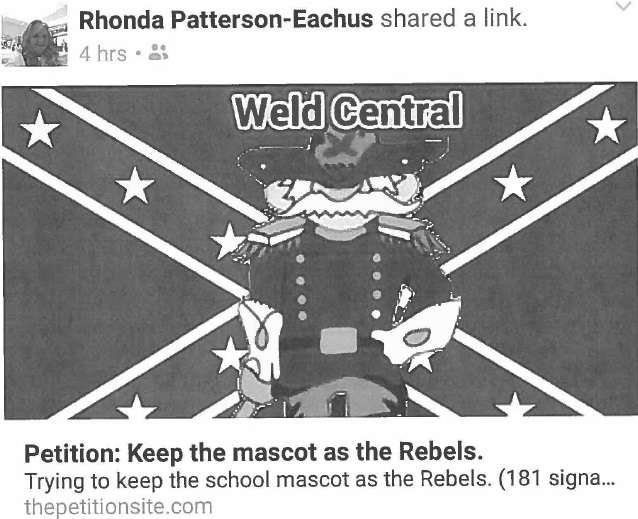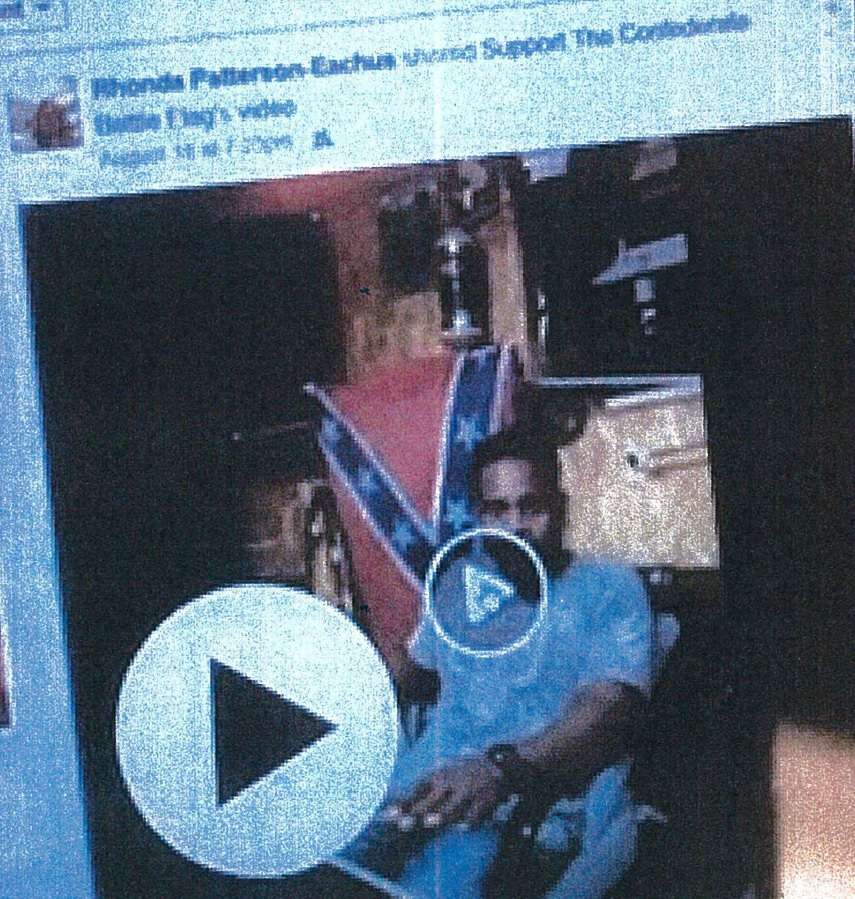The Volokh Conspiracy
Mostly law professors | Sometimes contrarian | Often libertarian | Always independent
Firing for Off-Duty Pro-Confederate-Flag Speech May Violate Colorado Statutes
So held a federal judge, I think correctly, interpreting those particular statutes, in a lawsuit against United Airlines.
For more on the state statutes like those discussed here, see this article (and in particular pp. 313-15 on the potentially broad scope of "political activity," as extending beyond election campaigns). From Magistrate Judge Michael E. Hegarty's decision Wednesday in Patterson-Eachus v. United Airlines, Inc. (D. Colo.) (images added from the court record):
Plaintiff worked for Defendant for thirty-one years in several capacities, most recently as a supervisor of airport operations. Her conduct and performance were not an issue until, as Defendant describes it, she posted certain "divisive" messages on Facebook.
{Sometime in August 2017, on her personal time and computer, Plaintiff re-posted to her private Facebook page her support for preserving the "Rebels" mascot of her high school, Weld Central High, including a cartoon soldier superimposed on a Confederate flag (the "Rebels mascot post").
Sometime also in August 2017, Plaintiff re-posted to her private Facebook page a video of an African American male in front of a Confederate flag who, among other things, opined that the Confederate flag is not the evil that many people say it is (the "Confederate flag post").}
Defendant learned of those messages, investigated them, found other issues with Plaintiff's on-the-job conduct, and terminated Plaintiff based on its purported findings that Plaintiff's negative interactions with subordinates irreparably damaged her ability to supervise….
[1.] Under Colo. Rev. Stat. § 24-34-402.5:
It shall be a discriminatory or unfair employment practice for an employer to terminate the employment of any employee due to that employee's engaging in any lawful activity off the premises of the employer during nonworking hours….
This law "was meant to provide a shield to employees who engage in activities that are personally distasteful to their employer, but which activities are legal and unrelated to an employee's job duties." … Plaintiff contends she was terminated because of her private activity in posting material to her own Facebook account….
[T]he record contains … evidence Plaintiff was terminated for her Facebook activity…. The termination letter dated October 16, 2017 begins with the statement that Plaintiff posted "inappropriate and racially insensitive" material to her Facebook account. It states that this posting "was a clear violation of our United Social Media Policy and the [UAL] Guidelines." It informs her that, as a result of the Facebook post, she was being disciplined and investigated. The letter also accuses Plaintiff of "continu[ing] to deny that the racially insensitive Facebook post was inappropriate and that there was anything wrong with posting the racially offensive video on Facebook, where a number of your direct reports could see it."
Next, the letter lists six distinct reasons why Defendant believed Plaintiff violated [employer] policies. Most of these reasons would apply equally to the Facebook posts as they would to Plaintiff's direct interactions with subordinates.
Finally, the letter states Plaintiff has broken the trust Defendant placed on her, while explaining that Plaintiff will not be given progressive discipline because the "progressive discipline process is based on changing behavior but that is not possible if you do not acknowledge that what you did was wrong and take ownership of your offensive and inappropriate behavior." Again, the letter directly accuses Plaintiff of denying the inappropriateness of the Facebook activity. Whether the Facebook posts were a contributing factor in the termination is a disputed material fact.
Defendant next relies on a statutory exception permitting the prohibition of conduct relating "to the employment activities and responsibilities of a particular employee or a particular group of employees, rather than to all employees of the employer." The UAL Guidelines cited by Defendant apply to all employees, not just supervisory….
While it may be true United holds supervisors to a higher standard in some respects, that cannot change the plain meaning of a statute. If an employer's policies explicitly apply to "all employees," I cannot find, as a matter of law, that the statutory language of the exception has been met….
"[T]his portion of the statute was probably crafted to allow employers to require certain high profile members of their staff from foregoing involvement in activities that would call into question their competence." The problem is Defendant's attempt to shoehorn its after-the-fact "higher standard" testimony into a statutory exception allowing an employer to "require certain high profile members … from foregoing involvement in activities." Just as … "[p]romotion of a positive image for Delta is not the exclusive province of baggage handlers" [the job category of employees in a previous case -EV] so too is the prohibition of racially offensive conduct not exclusively for supervisors….
Furthermore, the Colorado Court of Appeals has interpreted the statutory exception as applying to activities that are inherently connected with employment and emanate from the particular duties of the plaintiff's job. Williams v. Rock-Tenn Servs., Inc. (Colo. App. 2016). "Such activities and responsibilities must be unique to or within the exclusive province of the particular employee or group of employees."
In Williams, plaintiff was the manager of a cardboard manufacturing plant. The plant failed an internal audit. Corporate management scheduled a meeting to discuss the audit with plaintiff. Instead of attending the meeting, plaintiff went on vacation and was fired as a result. The court held, unremarkably, that attending such a meeting was an inherent requirement of a plant manager's job: "[The Lawful Off-Duty Activities Statute] is designed to protect employees from termination for private, personal activities, not from adverse employment consequences resulting from going on a vacation that conflicted with a meeting reasonably and rationally related to the party's employment." …
To the extent Plaintiff can prove to a jury that Defendant relied on Plaintiff's on-duty conduct in the termination, this statutory exception will not apply…. This will be a matter for a jury to decide….
[2.] Colo. Rev. Stat. § 8-2-108 [a separate statute] … prohibits an employer from terminating an employee for "engaging in or participating in politics" or "political activity." Defendant assumes for purposes of summary judgment that the conduct in question (supporting the Rebels mascot, commenting on the meaning of the Confederate flag) constitutes political activity under the statute.
Defendant's only argument on summary judgment is that Plaintiff was not terminated because of her Facebook posts. I have already determined that the basis(es) for her termination creates a fact issue. Therefore, summary judgment is inappropriate on this claim….




Show Comments (5)